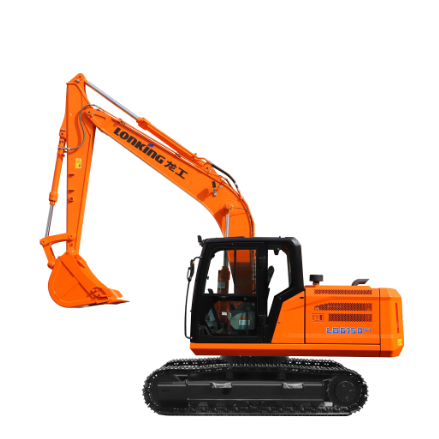The Role of Excavators in Modern Construction Sites
Excavators have become indispensable machines on construction sites of all sizes. Their ability to perform a wide range of tasks with speed and precision has significantly improved project timelines and overall efficiency. From digging foundations to lifting heavy materials, excavators are now considered essential for modern construction operations.
Versatility of Excavators on Site
Earthmoving and Digging Tasks
Excavators are primarily known for their digging capabilities. Whether it's trenching for utilities, preparing foundations, or clearing land, these machines can move large volumes of soil quickly and accurately. Their hydraulic systems provide strong digging power, while various attachments such as buckets and augers make them adaptable for different ground conditions.
Material Handling and Transport
In addition to digging, excavators are often used for lifting and moving construction materials. With the right attachments, operators can use them to transport pipes, beams, or even concrete slabs across the site. This reduces the need for multiple types of machinery, saving both time and cost while ensuring material handling remains efficient.
Enhancing Speed and Reducing Labor
Faster Project Completion
By replacing manual labor with mechanized digging and lifting, excavators allow construction teams to complete tasks much more quickly. A job that might take several workers days to finish can often be accomplished in just a few hours with a single excavator. This leads to shorter project timelines and better resource allocation.
Minimizing Workforce Requirements
Excavators not only speed up tasks but also reduce the number of workers needed on-site. With fewer laborers required for physical digging and lifting, companies can allocate their workforce to other critical areas, improving overall productivity and reducing labor costs in the long run.
Precision and Safety Benefits
Improved Accuracy with Advanced Controls
Modern excavators are equipped with GPS and smart control systems that allow for highly precise operations. Whether it’s digging to an exact depth or grading a slope with accuracy, these systems help minimize errors and reduce the need for rework. This precision translates into higher construction quality and lower operating costs.
Enhancing On-Site Safety
By taking over many of the physically demanding and dangerous tasks, excavators help reduce the risk of accidents and injuries. Operators remain safely inside the cab, which is usually reinforced and climate-controlled, while the machine handles the heavy lifting. This contributes to a safer working environment and fewer delays due to injury-related issues.
Adaptability Through Attachments
Using Specialized Tools
Excavators are designed to be compatible with a wide range of attachments. From hammers for breaking concrete to grapples for sorting demolition debris, the ability to switch tools quickly enhances their flexibility. This means the same machine can be used for demolition, grading, lifting, or landscaping, depending on what the project requires.
Customizing for Project Requirements
Project needs can vary greatly from one site to another. Fortunately, excavators can be fitted with attachments that match specific demands, eliminating the need for multiple machines. This not only saves space on tight job sites but also reduces overall equipment costs and logistics complexity.

Cost Efficiency in Long-Term Use
Fuel Efficiency and Performance
With advances in engine technology, modern excavators are far more fuel-efficient than older models. Some even come with hybrid systems that reduce energy consumption while maintaining high performance. Lower fuel use means significant savings over time, especially on large-scale projects.
Lower Maintenance Costs
Today’s excavators are built with durability in mind. Features like automatic lubrication, improved filtration systems, and real-time diagnostic tools reduce maintenance downtime and costs. Regular servicing ensures these machines remain in peak working condition throughout their lifecycle.
Environmental Impact and Sustainability
Reducing Carbon Footprint
Many construction companies are now focused on reducing their environmental impact. Excavators with lower emissions and better fuel management contribute to greener construction practices. Hybrid or electric models are also becoming more common in urban areas where emissions control is a top priority.
Limiting Site Disruption
Because excavators perform tasks quickly and efficiently, they help reduce the overall time equipment is running on-site. This not only lowers noise levels but also minimizes disruption to surrounding environments, particularly in residential or commercial zones.
FAQ
What Are the Primary Tasks Performed by Excavators?
Excavators are mainly used for digging, trenching, grading, lifting materials, and site preparation. With the right attachments, they can also be used for demolition, compaction, and material handling.
How Do Excavators Improve Job Site Safety?
Excavators reduce the need for manual labor in dangerous tasks such as deep digging or heavy lifting. Operators work from a safe, enclosed cabin, and the machine handles the hazardous work, minimizing the risk of injury.
Can One Excavator Handle Multiple Tasks?
Yes, with interchangeable attachments, one excavator can perform a wide range of functions including digging, breaking concrete, handling materials, and grading surfaces. This flexibility makes them highly efficient on diverse job sites.
Are Excavators Expensive to Maintain?
While excavators do require regular maintenance, newer models are designed for reliability and long-term use. Features like automated greasing and onboard diagnostics help reduce maintenance time and costs.

